Plagiarism
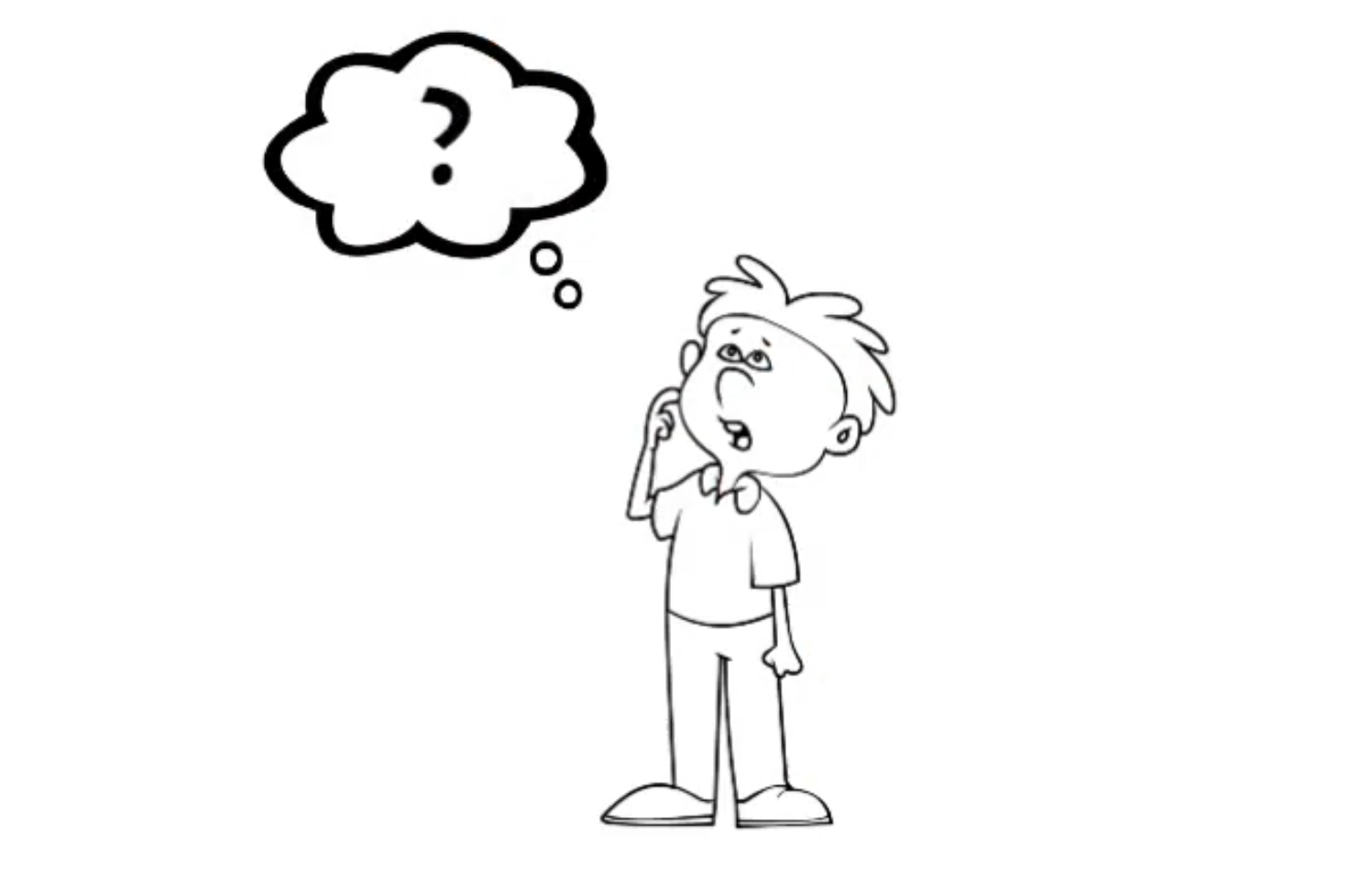
What is Plagiarism?
According to the American Psychological Association (2022), “plagiarism is the act of presenting the words, ideas, or images of another as your own; it denies authors or
creators of content the credit they are due.”
Buying, stealing, copying, or borrowing a paper and presenting it as your work are all examples of plagiarism. It also includes copying from a source without a proper citation. Watch the video to the left to learn more.
WHAT IS NOT PLAGIARISM?
- Using your writings about your experiences, observations, and thoughts.
- Using your artwork, photographs, video, music, and other creations.
- Expressing an idea in your own words and giving credit.
- Using a direct quote and giving credit.
- Using common knowledge such as folklore, urban legends, and historical events (For example: Abraham Lincoln was the 16th president)
- Using widely accepted facts (For example: Smoking cigarettes is harmful to health)
SOME PLAGIARISM IS ACCIDENTAL
Plagiarism can be intentional or unintentional, such as inadvertently using someone’s ideas without giving them credit or repeating the words of a source too closely instead of using quotation marks.
Let’s review and review further and take a look at some examples.
Intentional Plagiarism occurs if you deliberately and knowingly copy another person’s work and pass it off as your own without giving credit to the writer.
There are different types of intentional plagiarism, including:
- Complete plagiarism
- Direct plagiarism
- Find & replace plagiarism
- Mosaic plagiarism
- Self-plagiarism (Yes! You can plagiarize yourself!)
Unintentional Plagiarism occurs if you do not know how to acknowledge the sources you have in the correct academic manner. Even with the best intentions, accidental plagiarism is a common mistake. Negligence or ignorance does not absolve you from charges of plagiarism.
To avoid unintentional plagiarism:
- Keep tidy research notes
- Use proper citations.
- Paraphrase
- Proofread
Also known as wholesale or verbatim plagiarism, this occurs when a writer an entire work word-for-word and passes it off as their own.
Original Text:
Plagiarism is said to run rampant among students today – not to mention several prominent cases involving journalists, authors and historians in recent years. With electronic cut-and-paste techniques and the wealth of information freely available on the web, it has never been easier to plagiarize (Maxymuk, 2006, p. 44).
Plagiarized Text in Red:
Plagiarism is said to run rampant among students today – not to mention several prominent cases involving journalists, authors and historians in recent years. With electronic cut-and-paste techniques and the wealth of information freely available on the web, it has never been easier to plagiarize.
Also known as partial plagiarism, this type occurs when direct quotations from source material are mixed with a writer’s original words without attribution.
Original Text:
Plagiarism is said to run rampant among students today – not to mention several prominent cases involving journalists, authors and historians in recent years. With electronic cut-and-paste techniques and the wealth of information freely available on the web, it has never been easier to plagiarize (Maxymuk, 2006, p. 44).
Plagiarized Text in Red:
Plagiarism is said to run rampant among students today. An aspiring plagiarist has many tools at his or her disposal; with electronic cut-and-paste techniques and abundant information freely available on the web, it has never been easier to plagiarize.
Occurs when a writer changes the position of words or sentences in the source material, or substitutes a few words for their synonyms. This is often confused with true paraphrasing.
Original Text:
Plagiarism is said to run rampant among students today – not to mention several prominent cases involving journalists, authors and historians in recent years. With electronic cut-and-paste techniques and the wealth of information freely available on the web, it has never been easier to plagiarize (Maxymuk, 2006, p. 44).
Plagiarized Text in Red:
Plagiarism is said to run rampant among today’s students – not to mention a number of cases involving historians, authors and journalists in recent years. It has never been easier to plagiarize with electronic copying techniques and the wealth of information available for free on the web.
A passage pieced together from bits and pieces taken from multiple sources.
First source:
Plagiarism is the new dirty word on campus, and college instructors are increasingly interested in teaching students how to prevent committing plagiarism (Barry, 2006, p. 377).
Second Source:
Plagiarism is said to run rampant among students today – not to mention several prominent cases involving journalists, authors and historians in recent years. (Maxymuk, 2006, p. 44).
Third source
Existing literature on plagiarism calls for educational interventions that go beyond definitions of plagiarism in an academic handbook and provide students with contextualised
examples, case scenarios and opportunities for practising their referencing and paraphrasing skills (Risquez, O’Dwyer, & Ledwith, 2011, p. 750).
Plagiarized Text in Red:
Plagiarism is the new dirty word on campus, and college instructors are progressively interested in teaching students how to avoid it (from first source). Plagiarism is said to run rampant among students today – not to mention several prominent cases involving aspiring writers in recent years (from second source). Existing literature on plagiarism calls for educational interventions that go beyond definitions of plagiarism in an academic handbook and provide students with understandable examples, case scenarios and opportunities for applying their referencing and paraphrasing skills (from third source).
Presentation of your own previously published work as original. “Stealing from yourself.”
Example:
Writing a paper for one course and then using the same paper in other courses that cover the same topic.
How to Avoid It:
Properly cite your previous material in your new work and include it in your reference list. Don’t just cut and paste.
Check out an example of an appropriately paraphrased passage with credit given to the original author.
Original Text:
Plagiarism is said to run rampant among students today – not to mention several prominent cases involving journalists, authors and historians in recent years. With electronic cut-and-paste techniques and the wealth of information freely available on the web, it has never been easier to plagiarize (Maxymuk, 2006, p. 44).
NOT PLAGIARIZED:
According to Maxymuk (2006), many students, as well as professionals, plagiarize. Plagiarism is facilitated by the availability of free information on the Internet and by technologies that allow one to copy text from a source and paste it into one’s paper.
Note that credit was given to Maxymuk for his ideas.
American Psychological Association. (2020). Publication manual of the American Psychological Association (7th ed.). American Psychological Association.
Barry, E. S. (2006). Can paraphrasing practice help students define plagiarism? College Student Journal, 40(2), pp. 377-384.
Maxymuk, J. (2006). The persistent plague of plagiarism. The Bottom Line, 19(1), pp. 44-47.
Risquez, A., O’Dwyer, M., & Ledwith, A. (2011). Technology enhanced learning and plagiarism in entrepreneurship education. Education + Training, 53(8/9), pp. 750-761.
doi:10.1108/00400911111185062
WHEN TO GIVE CREDIT?
You should give credit when using sources other than your own words or ideas. Credit must be given as a citation for using something somebody wrote, said, emailed, drew, or implied. Cite any words, images, videos, ideas, or creations from someone other than you. It’s always better to err on the side of citing too much rather than too little.
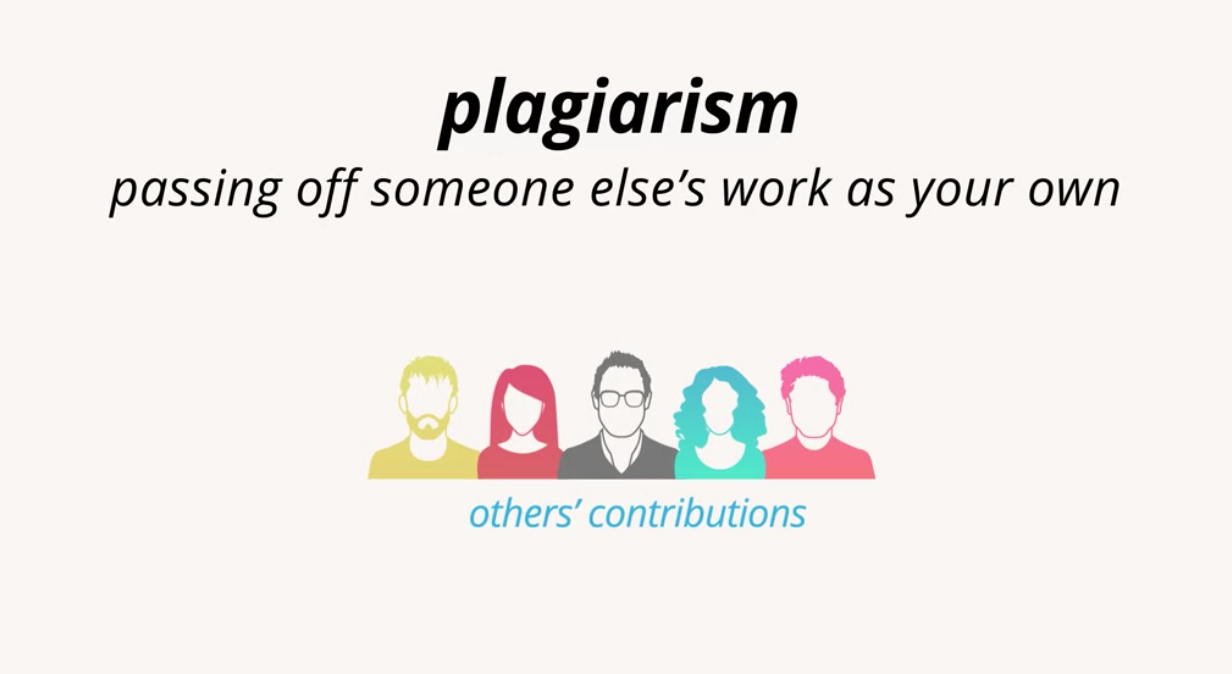
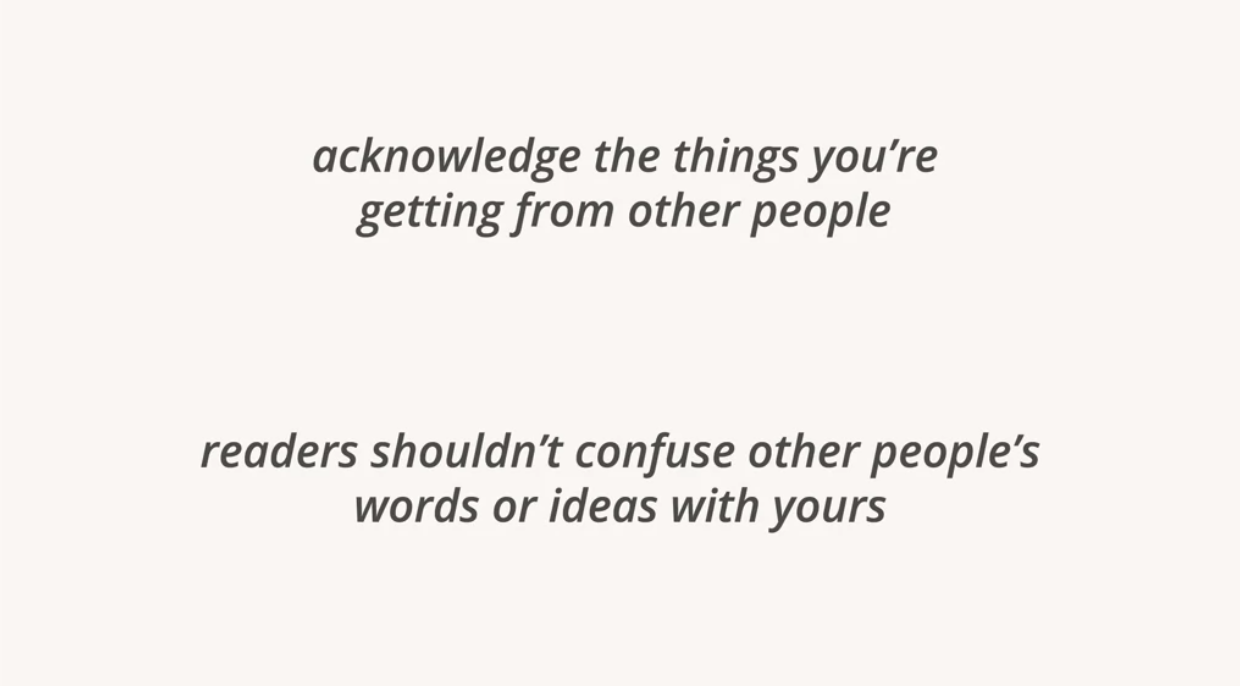
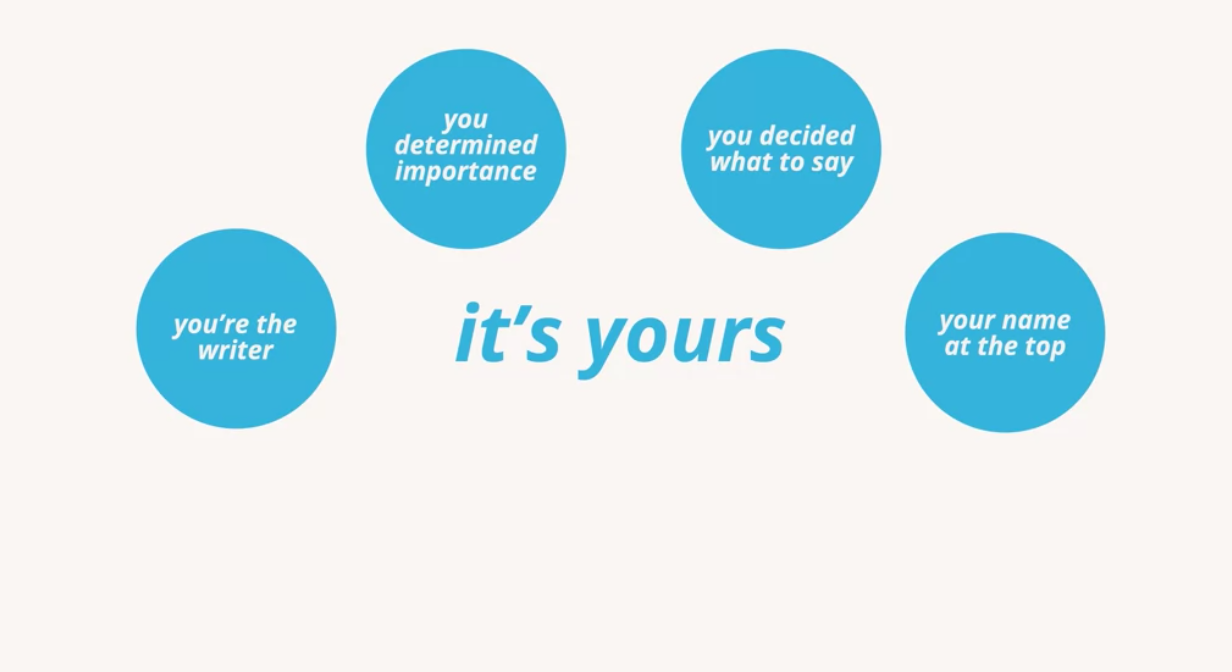
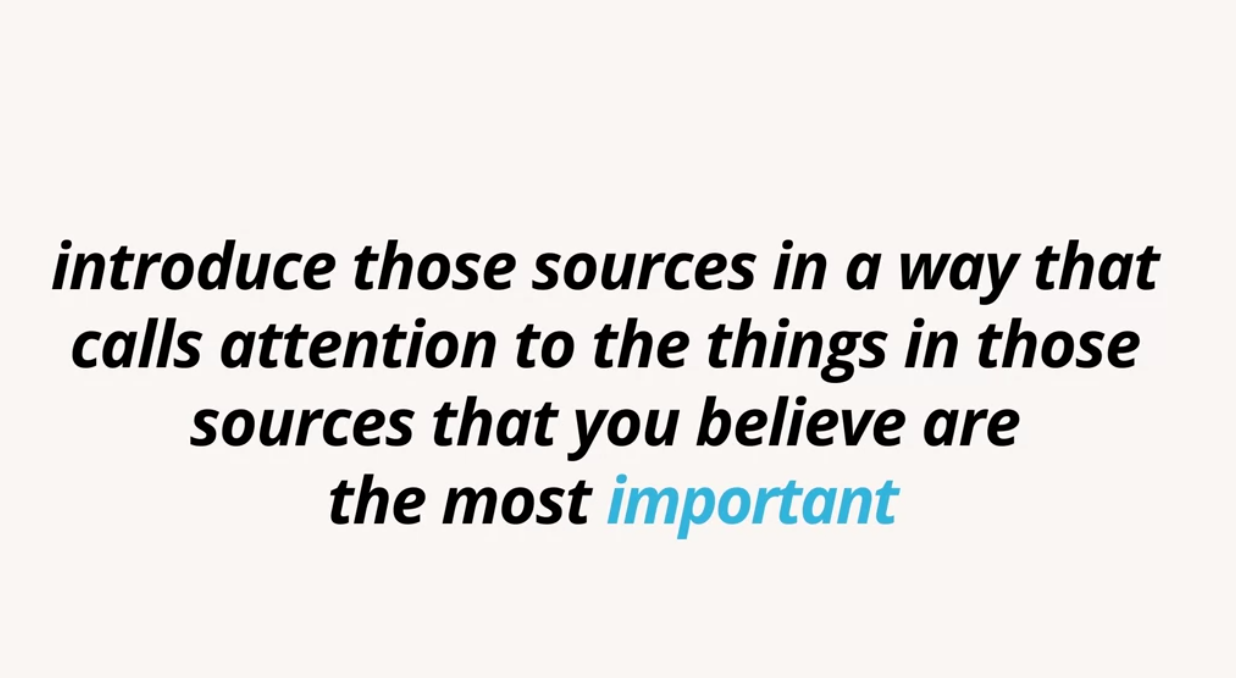
Plagiarism
Balancing Act
Finding Your Voice
Introducing Sources
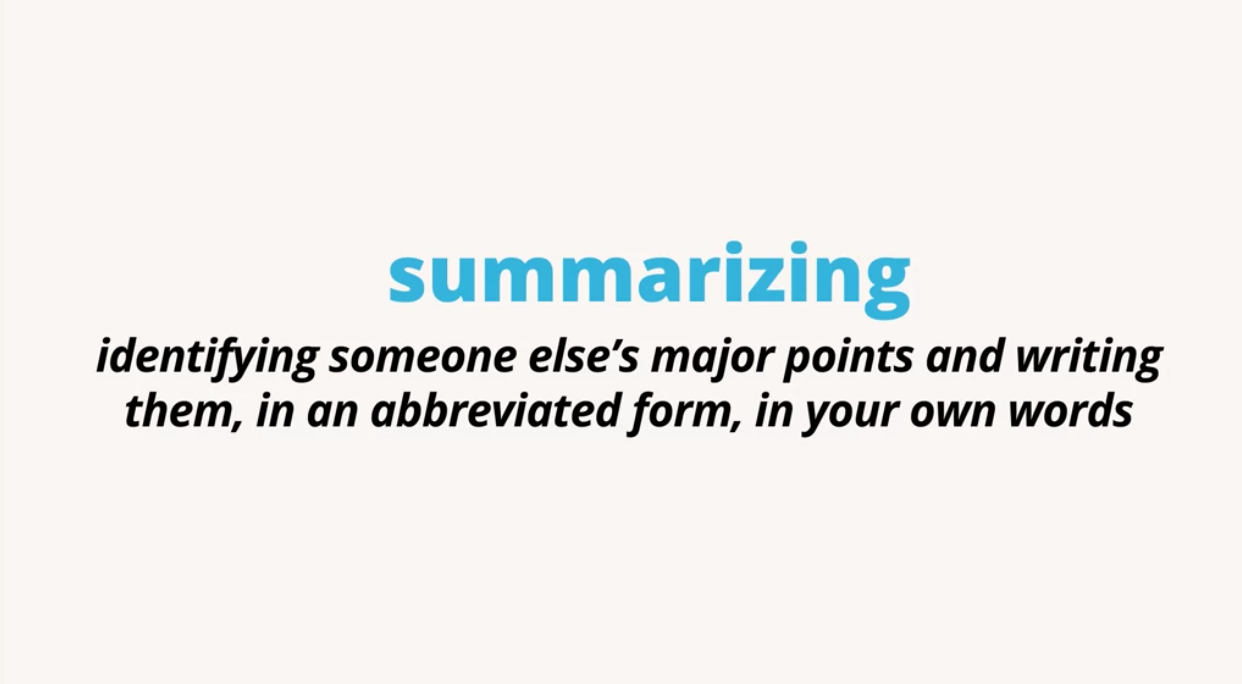
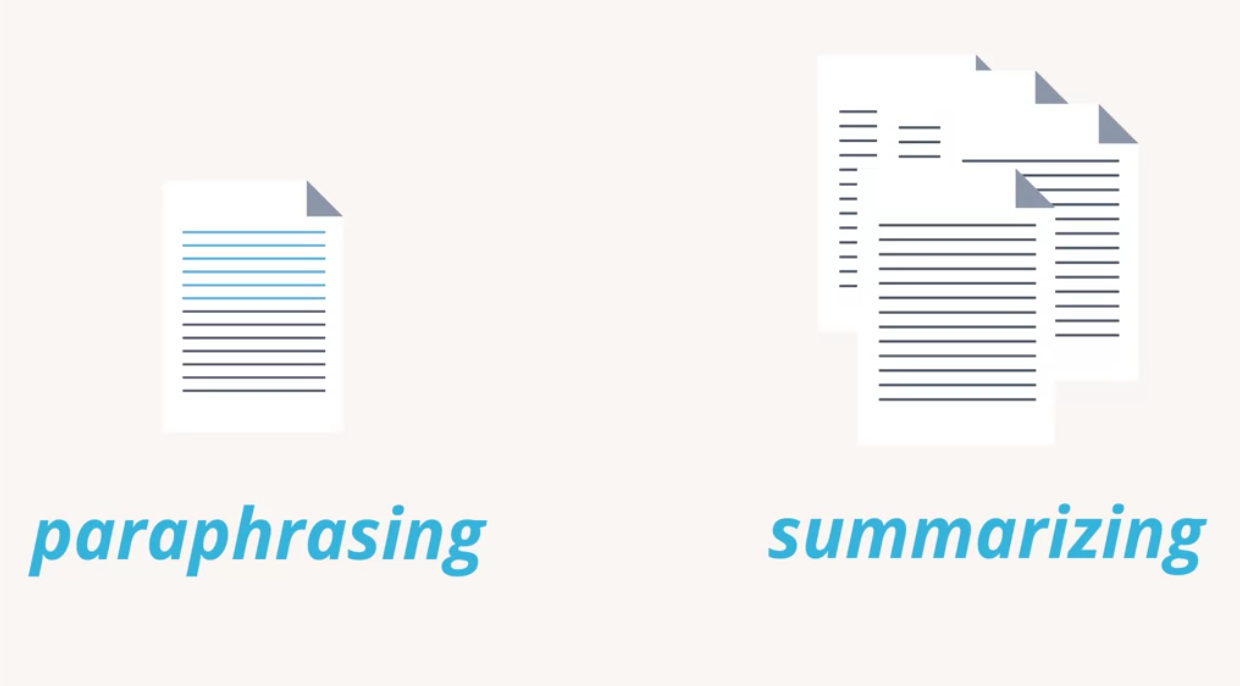
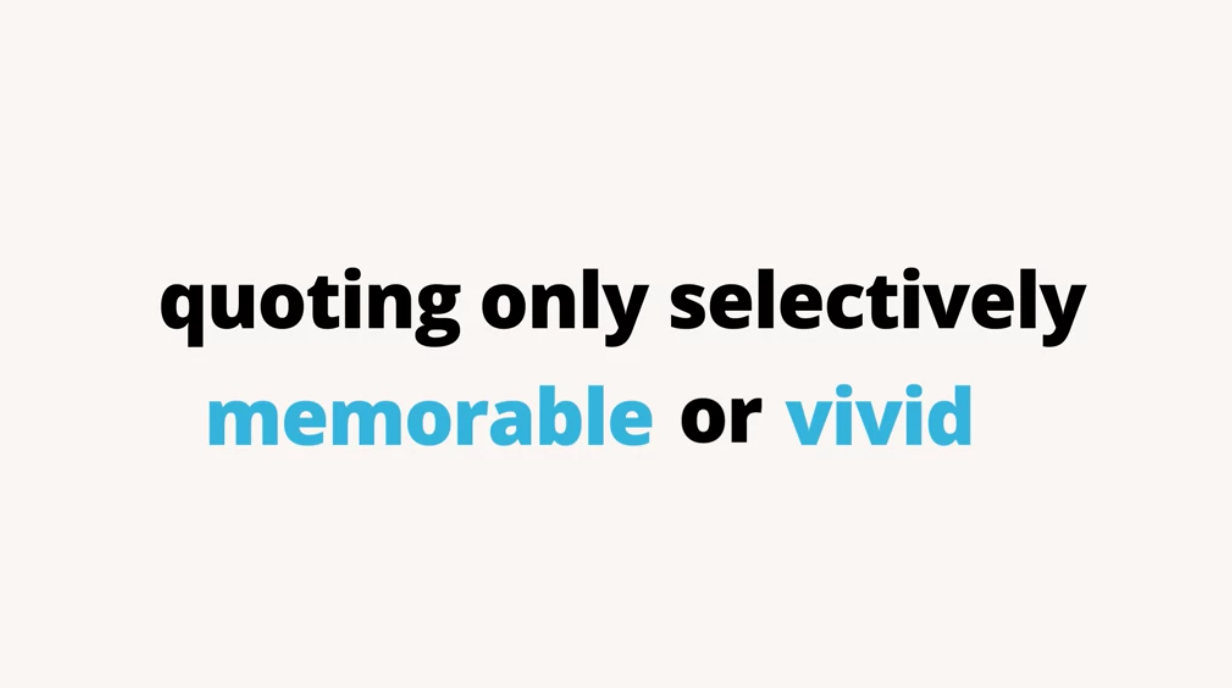

Summarizing
Paraphrasing
Quoting
Video content retrieved from the ProQuest Research Companion